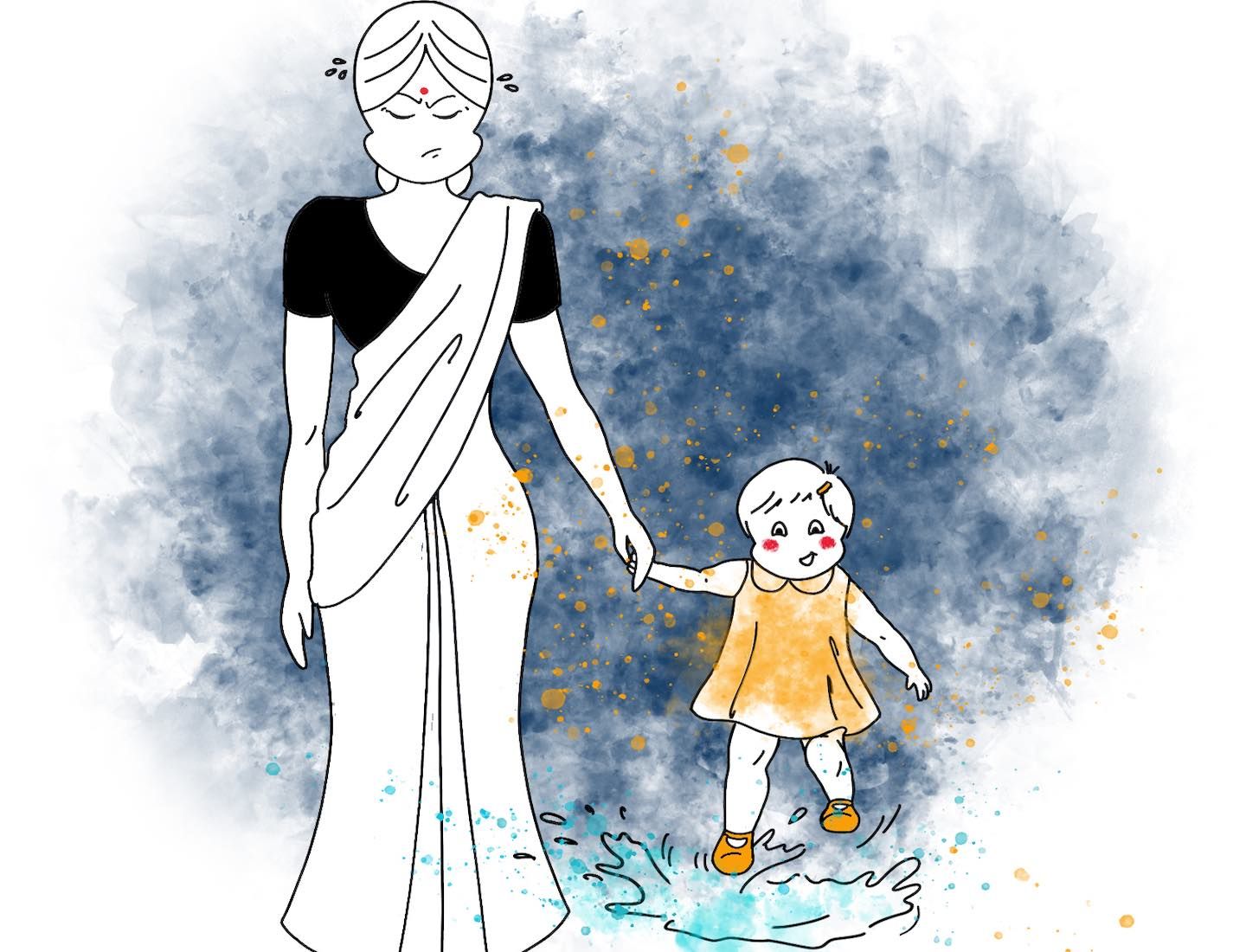In 1973, four-year-old Susan opened the cupboard of their guest room and saw many chess pieces fall out of a small bag. Just next to them was a rolled-up chess mat. She took the mat out and looked at the pieces with the kind of intrigue comparable to any other child of her age.
“What are these, Mummy?” Susan asked innocently, holding a piece in her hand and examining it.
“These are chess pieces, Zsuzsa,” she said, careful to not sound too enthusiastic, worried it might just kill Susan’s excitement. When parents are too excited to introduce something to a child, almost always, the child rejects it. I don’t think children do it consciously, it’s more a reflex action in the beginning. They hear parents saying no all the time and that no becomes their standard response too. And once children discover the joys of rebellion, they stick with their original ‘no’ for a long time. Klara Polgar, however, was better prepared.
Eight years earlier, in 1965, Laszlo Polgar, a teacher in Hungary, had started courting Klara by writing letters. He held two degrees in psychology and education and a PhD with his dissertation in developmental capabilities. In his spare time, he would play chess. During their courtship, Laszlo had told Klara that he was working on a lifelong experiment of making geniuses and that he ‘needed a wife to jump on board’. Klara too held three degrees and spoke eight languages. She wanted to marry someone who could match her intelligence. She’d liked Laszlo’s research, hypothesis, and his personality of course, and the two got married. From USSR, she moved to Hungary to be with Laszlo and they started out in a modest apartment in Budapest.
In 1969, their first daughter, Zsuzsanna – also known as Zsuzsa, whose Western name was Susan Polgar – was born. Numerous times the two parents had reiterated their commitment to each other that the idea was not just to make a genius but rather a ‘happy genius’. While attainment in life is important, a sense of fulfillment is even more important. When you feel that you are progressing in your desired area, you experience greater fulfilment and this in turn helps you to remain happy and motivated.
The moment to put the hypothesis to test had arrived with Susan’s fascination with the chess pieces. This was the beginning of a lifelong and insightful experiment. It might appear a matter of chance that Susan discovered the chess pieces but in reality, it was anything but that. Klara and Laszlo had planned much before their daughter’s birth that they would carry out the experiment in chess where it would be easier to measure brainpower.
Klara Polgar opened up the chess mat and showed her four-year-old daughter how the pieces moved. Once again, she was careful not to sound too excited or make Susan feel that she should be playing chess because her parents wanted her to. Instead, she kept it low-key and fun. You can get anything done by anyone if you can make them think it’s their idea. In other words, when people, particularly children, feel that it’s their decision to do something, they will find the motivation to take it up and persist in the face of challenges.
In the evening when Laszlo returned home, Klara shared how Susan showed interest in chess. The two parents sat down, set up their chess set, and began playing a game. As children usually do when parents seem to be enjoying an activity, Susan – who was frolicking around until now – came and settled near the board. She was asking questions, hovering around her parents, and was beginning to get more and more fascinated with the chess pieces. They were careful not to ask her to observe their game or to play or learn it. They just played and enjoyed themselves (or at least pretended to enjoy).
With great patience, persistence and dogged-determination, Laszlo began training Susan. The journey proved particularly hard. Not because Susan didn’t want to play chess or Laszlo wasn’t equipped to teach her, it’s just that chess was an entirely a male-dominated sport at the time. Laszlo and Klara, however, knew that their daughter could play as good as anybody else, male or female.
Often, when Laszlo would take Susan out to chess clubs, other players in the club thought that it was Laszlo who had come for a game and had simply brought his daughter along. They thought he was crazy for wasting his time teaching chess to his daughter. And when a seven or eight-year-old Susan would beat seasoned players, many would usually either refuse to shake hands in the end or make excuses like, “I am sick, I have a headache, I didn’t sleep last night,” and so on. This didn’t deter the father-daughter duo. On the contrary, it only strengthened their resolve to prove to the world that girls were equally good, if not better than boys.
Laszlo and Klara continued Susan’s intensive and specialized training. Meanwhile, two more daughters were born to them. Sofia Polgar in 1974 and Judit Polgar in 1976. Against all odds, they applied the same principles of parenting and training to Sofia and Judit. The result, you ask? Let me spell it out one by one:
Susan Polgar won her first Under-11 chess tournament at age four. At twelve, she won the World (Girls) Under-16 championship. At fifteen, she became the top-rated female chess player in the world. Going through the conventional Grandmaster (GM) norms applicable to men, she became a chess grandmaster at the age of twenty-two. In 1996, twenty-seven-year-old Susan Polgar was crowned the women’s chess champion.
While raising Susan, her parents – Klara and Laszlo – had learnt more about parenting and intensive training, which meant that they provided an even better environment and coaching to their second daughter Sofia Polgar who at the age of eleven became a world Under-14 girls chess champion.
Armed with more experience and insight, it was only natural that their youngest daughter, Judit, was brought up in the most conducive environment for making a genius. Her siblings played chess which meant that the game was all they mostly talked about at home, at the dinner table. Her parents no longer had the over-cautiousness and anxiety most parents do with their first child. Their parenting skills were sharpened by now; they could maintain a better balance between giving personal freedom to their child and living up to a discipline. As a result, Judit’s accomplishments exceeded their expectations.
At age twelve, Judit Polgar had thirty-five more points in FIDE rating (world chess rating) than the erstwhile world women chess champion. At the age of fifteen, she became the youngest chess grandmaster, far ahead of any male chess grandmaster throughout the history of the game. She is generally considered the strongest female chess player of all time. At age ten, she not only took on chess grandmaster Lev Gutman, but won against him.
At age five, Judit defeated a family friend without looking at the board.
“You are good at chess,” the friend joked after the game, “but, I’m a good cook.”
“Yeah?” Judit said, without batting an eyelid. “So, do you cook without looking at the stove?”
All three daughters were home-schooled by Klara with a specialization in chess. They figured a long time ago (as an increasing number of parents are discovering today) that there was little sense in sending their children to a traditional school where regard for individual growth and understanding the temperament of each child was negligible. By the time most children come back home in the afternoon, they are tired and a whole day is gone. To expect that they then pursue intensive training in anything else at all is neither practical nor reasonable.
According to the eldest sister Susan, Judit was a slow-starter but very hard working. Laszlo too said that a happy genius is the result of labor + luck + love + freedom. He studied intelligence when he was a university student and later recalled: “When I looked at the life stories of geniuses, I found the same thing … They all started at a very young age and studied intensively.” Before even becoming a father, he had studied the biographies of 400 people from Socrates to Einstein and everyone in between and discovered the same pattern over and over again. “The experiment is not finished yet,” says Laszlo Polgar. “It began twenty-three years ago with a simple premise: that any child has the innate capacity to become a genius in any chosen field, as long as education starts before their third birthday and they begin to specialize at six.”
In my view too, the gist of scores of studies in child and human psychology spanning over several decades is as follows:
- Every child is a promise.
- That promise can be turned into a genius.
- Such a genius can be a happy person.
- Coaching begins when they are very young.
- It must be fun and playful.
By no means am I suggesting that every parent should try to make a genius out of their child, whether in sports, arts, science or any other field. Nor am I saying that geniuses make this world a better place or that you have a to be genius in life to be happy. As a parent, what path you choose for your child or they choose for themselves and you just support them is your personal matter. It is between you and your child and certainly isn’t my prerogative. Not even for a moment am I saying that every child should be pushed to their limits and not lead an easy life. On the contrary, in fact, I believe that there’s little sense in taking away a child’s personal freedom by pushing them to do something they don’t want to. Such a tug-of-war between parents and children turns toxic very quickly.
Irrespective of what you and I think, the truth is that the child in your home carries a seed of greatness. They represent an opportunity to explore the immense human potential. You can help them to make a difference to our world, to be the best in whatever they undertake. As a parent, you can make them aware of that possibility in a way they will understand, and help them walk the path they wish to tread.
Herein, I share how to go about building that character in a child’s mind so they are able to weather their storms with grace, and yet continue to sail through. Every daughter is a Gandhi, an Einstein or a Mozart waiting to be discovered. Every child has the potential to become a Picasso, a Ronaldo or a Nelson Mandela. Not everything is in our control, but with a great deal of what is, you can as a parent vastly increase the chances of ensuring your child reaches the heights of greatness without being pushy or preachy.
It begins with instilling a sense of excellence in all aspects of life, which if I may add, is a lifelong journey.
This is an excerpt from my new book, The Children of Tomorrow. In this book, I’ve shared my thoughts on parenting as I see it, backed by observation, research and various psychological studies. Published by HarperCollins India, you can grab your copy here.
A GOOD STORY
There were four members in a household. Everybody, Somebody, Anybody and Nobody. A bill was overdue. Everybody thought Somebody would do it. Anybody could have done it but Nobody did it.
Don't leave empty-handed, consider contributing.It's a good thing to do today.









Comments & Discussion
7 COMMENTS
Please login to read members' comments and participate in the discussion.